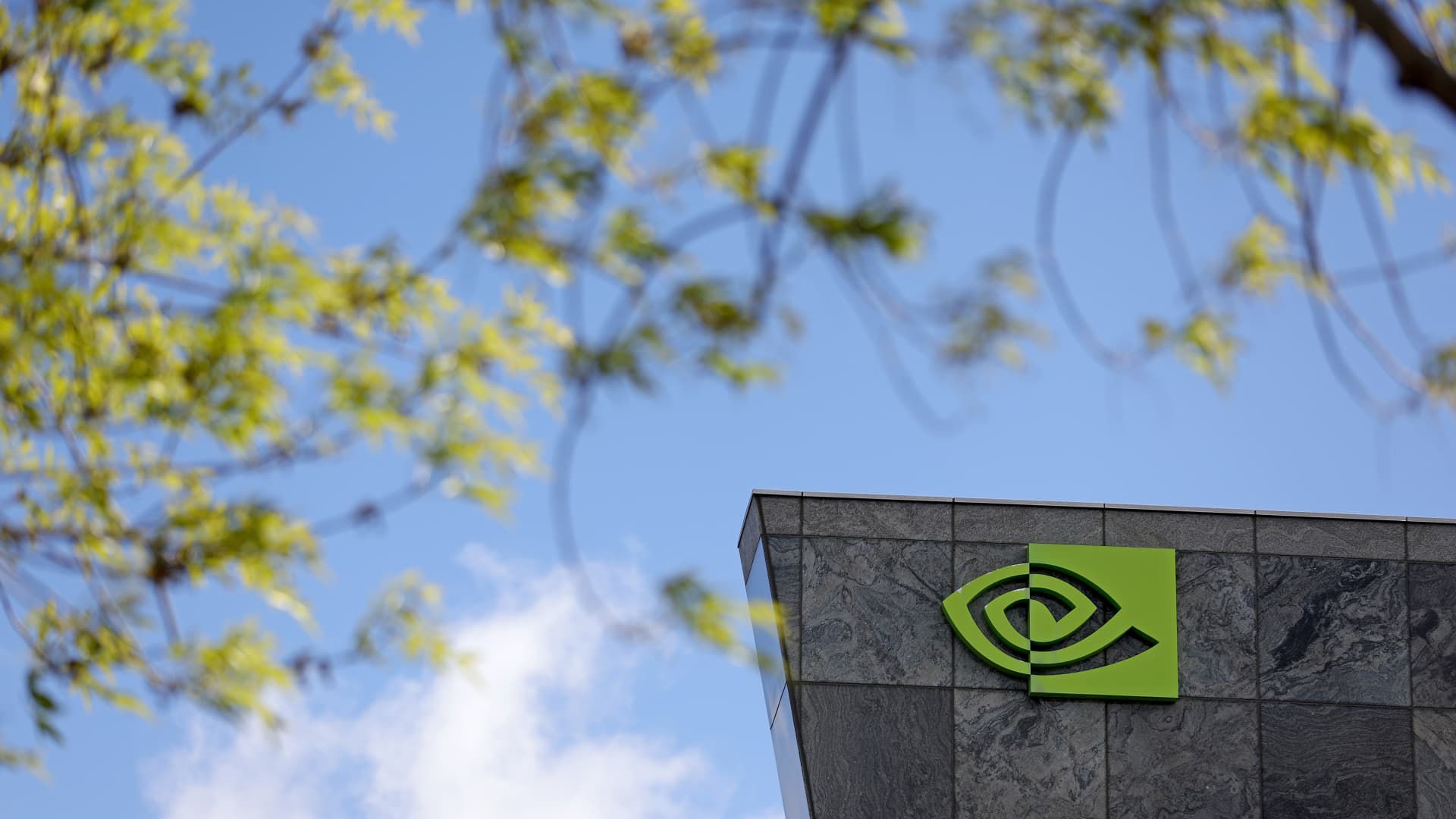Nvidia's plans for sales to huawei imperiled if u. S. Tightens curbs, draft report says
- Select a language for the TTS:
- UK English Female
- UK English Male
- US English Female
- US English Male
- Australian Female
- Australian Male
- Language selected: (auto detect) - EN

Play all audios:

The Nvidia headquarters in Santa Clara, California. Justin Sullivan | Getty Images News | Getty Images U.S. chipmaker Nvidia's plans to sell technology to China's Huawei would be
thwarted if the U.S. government proceeds with a proposal to further restrict shipments to the blacklisted company, a draft report by a government contractor shows. The Biden administration
has been considering limiting the items it authorizes U.S. companies to ship to telecoms equipment giant Huawei Technologies, which was added to a U.S. trade blacklist in 2019 but which
continues to receive billions in U.S. goods under a special plan implemented by the Trump administration. "The proposed 2023 amendment of (the Commerce Department's) licensing will
likely have a high economic impact on Nvidia," according to excerpts of the draft report seen by Reuters, referring to the company's "pending license value."
Nvidia's plans to sell to Huawei have not been previously reported. A Nvidia spokesperson declined to comment on the document, saying: "The China market presents a significant
opportunity for the U.S. semiconductor industry. While we are unable to comment on any pending license requests, we work with customers and partners worldwide to comply with all applicable
export controls and meet market demand." READ MORE ABOUT TECH AND CRYPTO FROM CNBC PRO This self-driving car technology stock could pop by more than 400%, say three analysts Looking for
alternatives to Nvidia? Futurum CEO names 3 he's bullish on for 2024 Bernstein tech analyst's best idea for 2024 is to short Tesla Morgan Stanley picks 'alpha'
opportunities in China tech - giving one 52% upside A senior State Department Official said the document was a preliminary draft prepared by a contractor, and the department "would not
have approved of the report in its current form." It also said the government "has written and contracted multiple reports on this subject, based on different contingencies, which
arrive at very different conclusions." The White House and Commerce Department declined to comment. Huawei did not respond to a request for comment. The document shows the Biden
administration is seeking to assess the impact on U.S. companies of proposed Huawei policy changes before imposing new rules that could crimp projected revenue streams at a time when the
tech industry is already reeling. It also provides unusual insight into the politically sensitive question of which U.S. companies are seeking business ties to Huawei, one of
Washington's most penalized Chinese companies. Reuters could not learn the details of the specific policy change whose impact was being assessed in the report. The report suggested
Qualcomm would likely suffer a "moderate economic impact" from the change in policy, in contrast to Huawei. Indeed, the loss of access to Qualcomm's modem chips would have a
bigger impact on Huawei, the report forecast, since Huawei "relies heavily on Qualcomm's modem chips to support its smart phone offering." Qualcomm did not respond to a
request for comment. Reuters reported in 2021 that U.S. officials had approved license applications worth hundreds of millions of dollars for Huawei to buy chips for its growing auto
component business, including vehicle components such as video screens and sensors, as trade restrictions crippled other business lines. Huawei was placed on the "entity list" in
2019 amid fears it could spy on Americans and allegations it was stealing intellectual property and violating sanctions. The U.S requires that suppliers seek a special license that is
usually denied when selling U.S. goods to companies on the list. But the Trump administration instituted a more lenient policy for Huawei, blocking its access to 5G chips but allowing other
items like 4G chips to be shipped to the firm. The Commerce Department's top export controls official, Alan Estevez, said this week the Trump-era policy allowing U.S. technology below
the "5G level" to be shipped to Huawei was "under assessment." But sources say there are differences within the administration odds over how far to go: some officials
advocate blocking all licenses to Huawei suppliers and revoking existing authorizations, while others want to extend restrictions only to 4G chips and other targeted technologies going
forward.